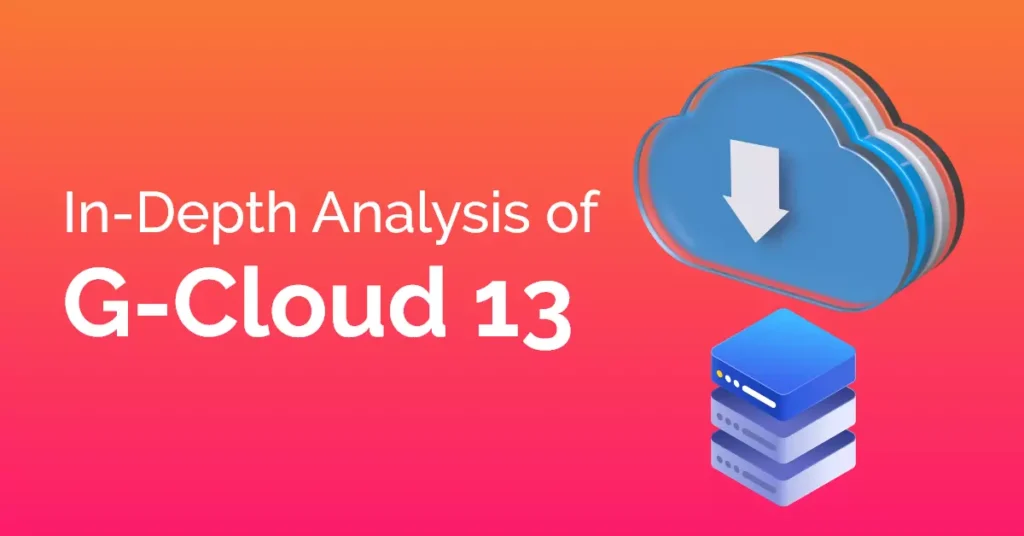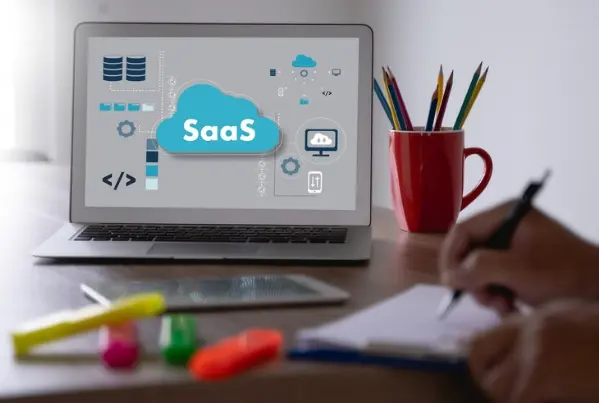A Comprehensive Guide of G-Cloud 13

The G-cloud is the short form of Government Cloud, and it was introduced by the Government of the U.K in 2012 to promote cloud computing adoption among public sector organizations.
The framework establishes a mutually agreed upon arrangement between cloud solution suppliers and the government, aimed at expediting and simplifying the procurement process for cloud solutions instead of individual procurement.
All the public sector organizations can now view available cloud solutions on the front-end catalogue “the Digital Marketplace,” managed by the Crown Commercial Service.
Companies must apply for membership to the G-Cloud framework to sell their services through the Digital Marketplace. It is becoming popular, especially due to its easy catalogue style and compliant ways of completing deals.
You may have heard about G-Cloud but want to know more about it. Keep reading this article because we have gathered all the information in this guide.
What Is G-Cloud 13 Framework?
The Crown Commercial Service (C.C.S.) has recently released G-Cloud 13, the latest digital services catalogue as of 2022. G-Cloud 13 replaces the previous version, G-Cloud 12, and features updated suppliers and new offerings for products and services.
The platform’s main objective is to simplify the process of procuring cloud-based computing services for public sector organizations. The platform achieves this by offering an extensive catalogue of thousands of cloud products and services that can be easily procured online, eliminating the need for a full tender process.
There are different products and services available on G-cloud 13, including:
- Cloud software (SaaS)
- Cloud hosting
- Cloud support
You can research the catalogue of products and services offered by hundreds of trusted and approved vendors to find the best service according to your requirements. It offers many benefits to buyers, such as reducing buying time and finding the best value procurement.
G-Cloud 13 is set to introduce a new category or lot dedicated to Cloud Support Services for larger and more intricate needs. This category will not be part of the Digital Marketplace, unlike Lots 1-3.
Additionally, G-Cloud 13 will feature enhanced terms and conditions, providing increased opportunities for day-rate cloud support services.
The new category, however, will be more demanding for suppliers to attain accreditation as it involves a competitive application process with limited spots available.
Suppose a buyer finds more than one supplier that meets their needs. In that case, they can either finalize a contract depending on price or follow M.E.A.T. (most economically advantageous tender) process, which does scoring against:
- Price, cost-effectiveness, running cost and whole life cost.
- Functional fit and Technical merit
- Non-functional characteristics
- After-sales and service management
Buyers can only need clear information from suppliers about their service description and pricing. They can not run any further competition or negotiate on pricing.
Who Is Eligible To Join G-Cloud 13 Framework?

G-Cloud solely offers cloud-based services that are pre-packaged and categorised under specific Lots. While many suppliers are likely to possess security certifications such as Cyber Essentials and ISO 27001 in compliance with industry standards, this is not mandatory.
Hence, it is important to filter the suppliers based on your specific requirements and preferences to find the most suitable one for your organisation.
What Are The Benefits Of G-Cloud 13?
Here are some most significant benefits that G-Cloud 13 offers to public sector organisations:
1. Cost-Effectiveness
It provides a more efficient and cost-effective way to access cloud-based services. G-Cloud 13 is pre-approved, so there is no need for lengthy procurement processes or contract negotiations, reducing the time and resources required to access these services.
2. Flexibility & Scalability
G-Cloud 13 provides flexibility and scalability. Public sector organisations can select services based on their specific requirements and scale up or down as needed. It allows organisations to adjust services based on changing needs or budgets.
3. Wide Range of Services
G-Cloud 13 provides access to various suppliers, providing organisations with a wider range of services. This competition between suppliers can drive innovation and reduce costs.
How To Choose The Right Cloud Service?
When selecting G-Cloud 13 services, there are several factors to consider. Firstly, organisations should assess their specific requirements and select services that best meet their needs. Additionally, organisations should consider the pricing and scalability of services and the level of support suppliers provide.
Examples of G-Cloud 13 services that may be useful to public sector organisations include cloud-based email and collaboration tools, cloud storage solutions, and cloud-based infrastructure services.
Some Common Myths About G-Cloud

As G-cloud is becoming popular, there are some myths that you may hear about it.
So, here we are describing those myths and the realities so that you can understand G-Cloud in a better way:
- You still need to run further competition to be compliant on G-Cloud, but the truth is that any form of further negotiation or competition is not allowed on G-Cloud. Therefore, the buyer is expected to make an award following a compliant search and selection process.
- Another myth is that you can only make short-term contracts on G-Cloud, but with the G-Cloud 13, you can enter into a contract of up to 3 years with a 1-year further extension option.
- Fixed supplier prices on G-Cloud which make it difficult to get the best value, is another misconception because, on G-Cloud, you may find dozens of supplier listings that allow buyers to make a price comparison.
- Another myth you may hear about G-Cloud is that the suppliers can not reduce their pricing, but the truth is that suppliers can’t increase their prices and usually offer discounts, such as for education.
- You may also have heard that it is not always clear what you are buying, but most suppliers on G-Cloud comprehensively describe their services and pricing plans, applicable S.L.A.s and detailed case studies for ease of buyers.
When Will G-Cloud 13 Come Out?
Customers can now access the G-Cloud platform, which provides an online catalogue to browse services offered by registered suppliers. All suppliers registering their accounts and services are included, making it a comprehensive resource.
The decommissioning of G-Cloud 12 has occurred as the new G-Cloud platform has become operational. To avoid interruption in service, it is strongly recommended that all customers register on the new platform promptly.
You need to create an account to access the portal, where you can find dozens of approved G-Cloud 13 vendors and discover available services.
Final Words - G-Cloud 13
In conclusion, G-Cloud 13 is a powerful tool that provides access to a wide range of cloud-based services from various trusted suppliers. By following the steps outlined in this comprehensive guide, businesses and organizations can take full advantage of the platform's features and benefits, including streamlined procurement processes, enhanced security, and cost savings. With G-Cloud 13, customers can be assured that they can access the latest and most innovative cloud-based solutions, helping them stay ahead of the curve in an increasingly digital world.



